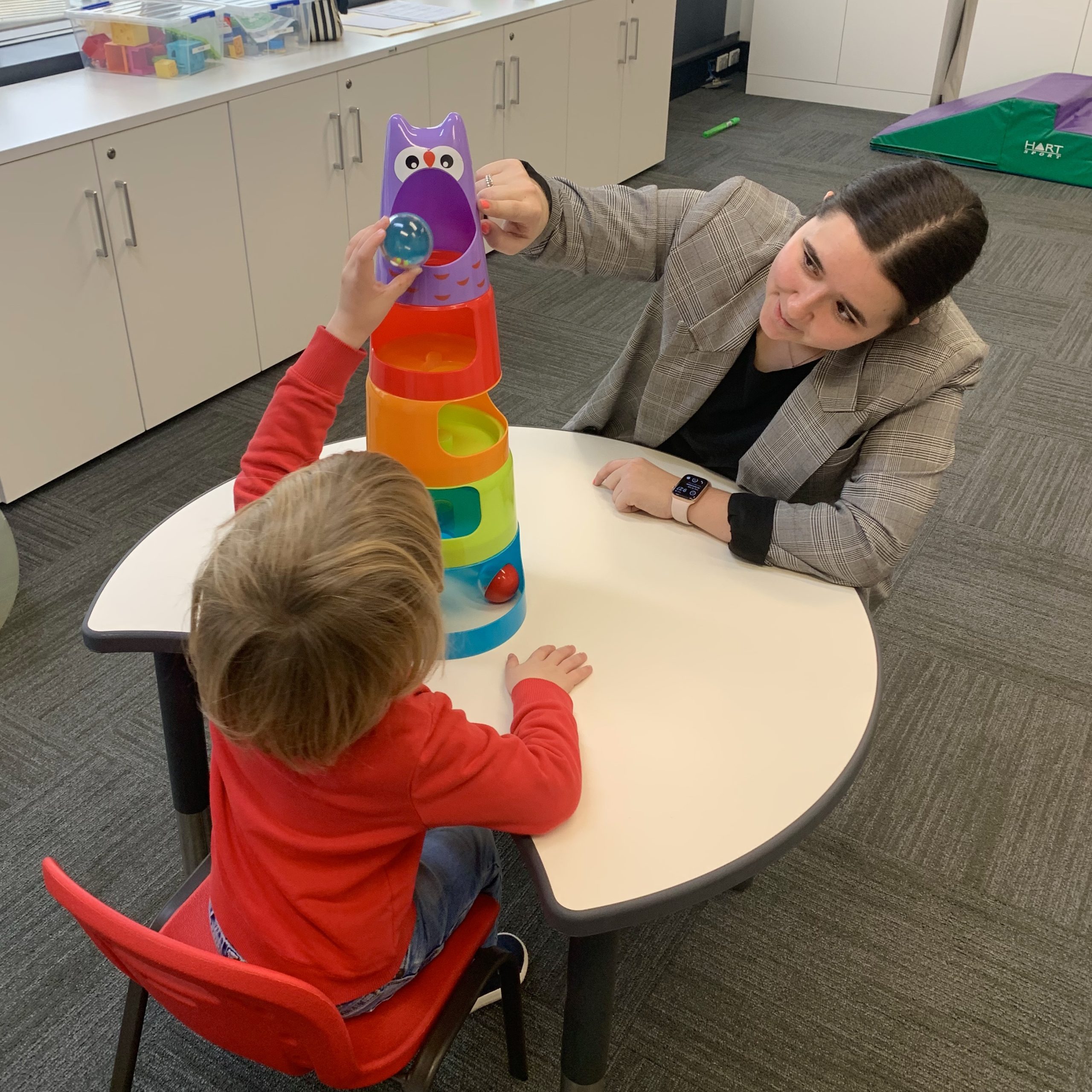
Help Your Child Talk – Tip #2: Slow Down for Better Communication
As parents, we’re constantly on the go, juggling busy schedules and daily tasks. But when it comes to talking to children, especially those with language delays, slowing down can make all the difference. At OneOnOne Children’s Therapy in Bondi Junction and Mascot, we encourage parents to adjust their pace of speech to help their children process and understand language more easily.
Why Is It Important to Slow Down?
Children’s brains are still developing, and they don’t process speech as quickly as adults do. When you slow down, you give your child extra time to:
- Listen to the sounds
- Understand the words being said
- Match the words to their meaning
- Think about how to respond
- Organise their muscles to say the words
- Focus on the conversation
This process takes more time for children, especially those with language delays. By slowing down, you’re giving them the chance to do all of these things correctly, and the more they practice successfully, the better they get!
Simple Speech Pathology Strategies to Use at Home
1. Slow Down Your Speech
When you speak more slowly, your child’s brain can process what you’re saying more effectively. For babies and toddlers, it’s helpful to speak quite slowly, but for preschool-aged children, you can speak a bit faster. The key is to match your speed to your child’s level of understanding. When they understand you better, they’ll stay engaged longer and look at you more attentively.
2. Emphasise Your Sounds
Children learn to speak by processing the sounds they hear. Help them by speaking clearly and emphasising the sounds in each word. Use what we call the “TV voice”—just like how news reporters speak, with clear pronunciation and slightly more emphasis on each sound. This makes it easier for your child to understand and mimic the sounds they hear.
3. Wait
After you say something, wait. Give your child at least 3-5 seconds, or even longer if needed, to process what you’ve said. Bombarding them with too much talking or repeating instructions too quickly can overwhelm them. When you wait, you allow their brain the time it needs to understand and respond.
4. Repeat What You Say
Children with language delays benefit from hearing things more than once. Repetition helps them remember, organise, and understand the words you use. After you say something, pause, then repeat it. You don’t need to repeat everything, just the most important parts. This is especially helpful when children are tired or distracted.
5. Use Shorter Sentences
The “One Up Rule” is a great way to adjust your speech to match your child’s abilities. This means you should use sentences that are just one word longer than what your child can say:
- If your child uses single words, speak in two-word phrases.
- If your child speaks in two-word phrases, use three words in your sentences.
- If your child can use 3-4 words, then you can use longer sentences.
This makes your speech easier for your child to follow and gives them a model for expanding their own language skills.
6. Model Language Instead of Asking Questions
Rather than asking lots of questions, try modelling the language you want your child to use. Questions can be complex and difficult for young children to process, especially if they have a language delay. Instead, say the phrases or words you want your child to imitate. Modelling language helps your child learn new words without the pressure of having to answer questions.
When Should You Start Using This Tip?
Don’t wait until your child starts talking! You can start using these strategies from birth. The earlier you begin, the better it is for your child’s language development. Consistency is key—make this a part of your everyday communication with your child. And don’t worry if it doesn’t feel natural at first. With practice, it will become easier and more effective.
What If My Child Still Isn’t Talking More?
If you’re using these strategies but your child isn’t showing progress, we’re here to help. Early intervention is crucial, and our team of experienced Speech Pathologists in Bondi Junction and Mascot can provide personalised support tailored to your child’s needs.
We’re Here to Support You
At OneOnOne Children’s Therapy, we believe every child deserves the opportunity to grow and thrive. Our clinics are welcoming spaces where children can discover their strengths, overcome challenges, and reach their full potential. We offer a holistic approach to paediatric therapy, combining innovative techniques with a nurturing environment. Our Speech Pathologists are members of Speech Pathology Australia.
Reach Out for Support
If you’re concerned about your child’s speech or want to learn more about how our Speech Pathology services in Bondi Junction and Mascot can help, reach out today. Call us on (02) 8065 7837 or email us. You can also book a free 30-minute phone consultation to discuss your concerns and explore how we can support your child’s unique journey.
